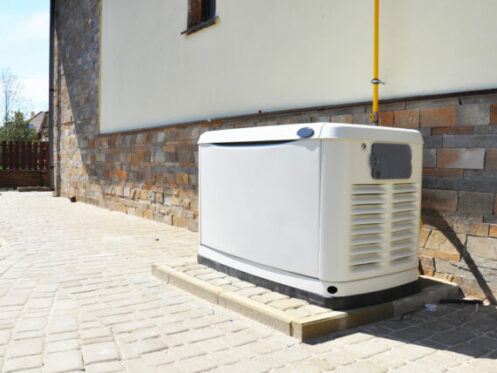Regardless of where you live, you’re always at risk of a power outage. The most common reason is storms, like hurricanes and tornados. Human error, animal interference, or system overload can all disrupt power. Regardless of the reason, you will want to have a reliable emergency generator. There are several different types, and all of the types listed should only be used outdoors. This guide can help you decide which type is best for you.
1. Gasoline Generators
Gasoline generators can be portable or large enough to power your home. One advantage of these generators is that it is easy to store gas for up to three years in an approved can with added fuel stabilizer. Be sure to check local regulations because it is against the law to permanently install a gasoline-powered generator in many places.
2. Diesel Generators
People often choose diesel generators for large jobs, such as commercial buildings. They offer the most energy per gallon. You can store diesel for up to one year in the proper conditions.
3. Natural Gas Generators
A professional must hook up natural gas generators to this permanent energy source. The great news is that storms seldom hurt these energy lines. Therefore, these generators usually work without you worrying about keeping energy, such as diesel or gasoline, on hand. Natural gas generators are very cost-effective to operate.
4. Propane Generators
Propane burns exceptionally clean. Propane can be stored long-term, so it is easy to keep this energy source for a generator on hand. Typical uses for this type of generator are RVs, food trucks, and inverter generators.
There are many types of generators available. Contact David White Services, Inc., in Athens, Ohio to learn more about having a generator installed at your home or business. Our company can also handle installation, maintenance, and repair for heating and cooling units. You can also contact us for air quality services and ductwork.



